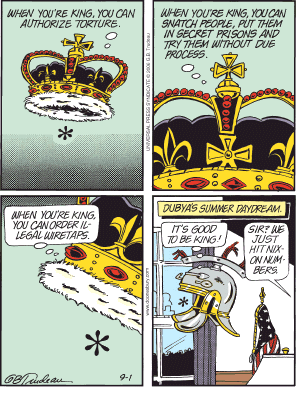 As the picture illustrates, I feel I deserve a high grade. Maybe not an A+, since no one is perfect, but I feel I've earned an A. Over the course of the semester, I've completed all of my assignments early, and I never missed one. I even did a couple extra ones, and I commented on other people's blogs when I found their topics interesting. I especially liked reading Sarah's blog.
As the picture illustrates, I feel I deserve a high grade. Maybe not an A+, since no one is perfect, but I feel I've earned an A. Over the course of the semester, I've completed all of my assignments early, and I never missed one. I even did a couple extra ones, and I commented on other people's blogs when I found their topics interesting. I especially liked reading Sarah's blog. I feel that I put effort and thought into all of the blogs that I've posted, and they are well written. All of them have to be close to error free grammatically because I edit my work carefully (I judge people by their
writing). I utilized hyperlinks and pictures in almost all of my blogs to give the reader something to look at besides columns upon columns of words, and my pictures all fit nicely; they aren't overwhelming and excessive. Also, when I used videos, they were relevant, used sparingly, and formatted to fit the constraints of my blog. And of course I came to class regularly, which demonstrates I care about learning enough to not skip.
writing). I utilized hyperlinks and pictures in almost all of my blogs to give the reader something to look at besides columns upon columns of words, and my pictures all fit nicely; they aren't overwhelming and excessive. Also, when I used videos, they were relevant, used sparingly, and formatted to fit the constraints of my blog. And of course I came to class regularly, which demonstrates I care about learning enough to not skip.
 Besides, if I'm only 11 points away from it anyway, by that logic I'd have to do less than failing work. I don't even know how a person would come by that grade unless it's just points for putting one's name on the page and nothing else. I feel like I've exceeded all of the requirements necessary to be successful in this class, so to coincide with that, a high grade would complement my expectations.
Besides, if I'm only 11 points away from it anyway, by that logic I'd have to do less than failing work. I don't even know how a person would come by that grade unless it's just points for putting one's name on the page and nothing else. I feel like I've exceeded all of the requirements necessary to be successful in this class, so to coincide with that, a high grade would complement my expectations.















































